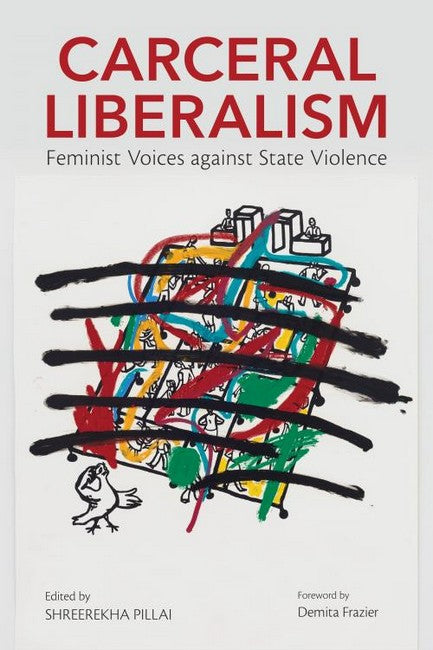Shreerekha Pillai is a professor of humanities at the University of Houston, Clear Lake. She is the author of Women Writing Violence: The Novel and Radical Feminist Imaginaries.
Request Academic Copy
Please copy the ISBN for submitting review copy form
Description
Foreword Demita Frazier Acknowledgments Introduction Shreerekha Pillai Part One: Carceral Narratives and Fictions Poems: Honoree Fanonne Jeffers, "Pantoum for a Black Man on a Greyhound Bus" and "Lost Letter #27: John Peters, Boston-Gaol to Phillis Wheatley Peters, Boston, December 3, 1784" 1. Carceral Trauma at the Intersections of Race, Class, Gender, Sexuality, and Maternity Cassandra D. Little 2. Prisons and Politics: Conceptualizing Prison Memoirs Shailza Sharma 3. Seeing Orange: Mediatizing the Prison Empire Shreerekha Pillai 4. Emptied Chairs and Faceless Inmates: A Critical Analysis of the Texas Prison Museum Beth Matusoff Merfish Poems: Ravi Shankar, "Against Innocence" and "Sunday School" The Stories that will not be Confined Poems: Solmaz Sharif, "Reaching Guantanamo" Part Two: Carceral Bodies and Systems Poem: Jeremy Eugene, "Space" 5. These Stories Will Not Be Confined Joanna Eleftheriou 6. Cornered: Day Laborers, Criminalization and Rituals of Democracy in Texas Francisco Arguelles Paz y Puente, aka Pancho 7. Resisting Criminalization: Principles, Practicalities, and Possibilities of Alternative Justices Beyond the State Autumn Elizabeth, Zarinah Agnew, D Coulombe 8. Going Carceral? Analyzing Written and Visual Representations of Prison Yoga Programs Tria Blu Wakpa and Jennifer Musial 9. Vacant Refuge, Unfinished Resettlement: Gendered Nativism and the Experience of Ambivalence among Displaced Syrian Iraqi and Women and Children in Houston, Texas Maria F. Curtis 10. Gendered Punishment and Social Control: Silenced Memories of Women in Wartime Peru Marta Romero-Delgado 11. Bad Girls of Pindra Tod Alka Kurian Poem: Javier Zamora, "Citizenship" Contributors Index
"A uniquely valuable intervention. Those of us--and I would say that is the majority of us who live our lives 'in freedom'--are importuned by the book's address, to wake up, to care, because what we perceive as our 'freedom' made available, so we think, as a consequence of living in the crucible of liberal ideals and beliefs--is inextricably bound up with the logics of incarceration."--Fawzia Afzal-Khan, author of Siren Song: Understanding Pakistan Through its Women Singers

